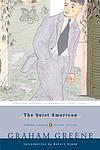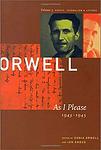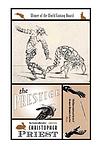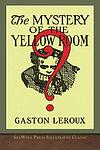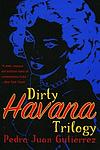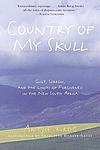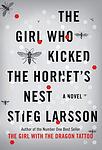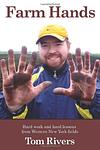The Greatest "Journalists" Books of All Time
Click to learn how this list is calculated.
This list represents a comprehensive and trusted collection of the greatest books. Developed through a specialized algorithm, it brings together 284 'best of' book lists to form a definitive guide to the world's most acclaimed books. For those interested in how these books are chosen, additional details can be found on the rankings page.
Genres
The category of "Journalists" in books refers to works of fiction or non-fiction that focus on the lives and experiences of journalists. These books may explore the challenges and rewards of the profession, the ethical dilemmas faced by reporters, or the impact of journalism on society. They may also delve into the personal lives of journalists, including their relationships, struggles, and triumphs. Overall, books in this category offer a unique perspective on the world of journalism and the people who work in it.
Countries
Date Range
Reading Statistics
Click the button below to see how many of these books you've read!
Download
If you're interested in downloading this list as a CSV file for use in a spreadsheet application, you can easily do so by clicking the button below. Please note that to ensure a manageable file size and faster download, the CSV will include details for only the first 500 books.
Download-
1. Nineteen Eighty Four by George Orwell
Set in a dystopian future, the novel presents a society under the total control of a totalitarian regime, led by the omnipresent Big Brother. The protagonist, a low-ranking member of 'the Party', begins to question the regime and falls in love with a woman, an act of rebellion in a world where independent thought, dissent, and love are prohibited. The novel explores themes of surveillance, censorship, and the manipulation of truth.
-
2. Fear and Loathing in Las Vegas: A Savage Journey to the Heart of the American Dream by Hunter S. Thompson
This book is a semi-autobiographical novel that chronicles the adventures of a journalist and his attorney as they embark on a drug-fueled trip to Las Vegas. The narrative is a wild and hallucinatory exploration of the American Dream, filled with biting social commentary and outrageous antics. The protagonist's quest for the American Dream quickly devolves into an exploration of the darker side of human nature, highlighting the excesses and depravities of 1960s American society.
-
3. A House for Mr. Biswas by V. S. Naipaul
The novel narrates the life of Mr. Biswas, a man of Indian descent living in Trinidad, who struggles against poverty and adversity to achieve personal independence and to build a home for himself and his family. Born into a poor family and married into an oppressive one, he constantly strives for autonomy and identity against the backdrop of post-colonial Trinidad. His dream of owning his own house becomes a symbol of his desire for self-determination and respect in a society that often denies him both.
-
4. Scoop by Evelyn Waugh
"Scoop" is a satirical novel that explores the world of journalism through the lens of an accidental war correspondent. The protagonist, a nature columnist, is mistakenly sent to cover a war in Africa due to a mix-up at a newspaper office. The book humorously depicts his struggles and mishaps as he navigates the chaotic world of war reporting, providing a critique of sensationalist journalism and the often absurd nature of international news.
-
5. The Quiet American by Graham Greene
Set during the French colonial war in Vietnam, this novel follows a British journalist and a young American idealist who become friends and find themselves in a love triangle with a Vietnamese woman. As the war escalates, the journalist becomes disillusioned with the American's naïve political views and the destructive impact of foreign intervention. The story is a critique of American involvement in Vietnam, exploring themes of love, friendship, and moral ambiguity.
-
6. The Year of Magical Thinking by Joan Didion
This book is a raw and honest exploration of grief and mourning, written by a woman who lost her husband of 40 years to a heart attack while their only child lay comatose in the hospital. The narrative delves into the year following her husband's death, a year marked by grief, confusion, and a desperate hope for things to return to normal. The author's poignant reflections on death, love, and loss serve as a powerful testament to the resilience of the human spirit.
-
7. Collected Essays of George Orwell by George Orwell
This book is a compilation of essays by a renowned author, known for his sharp wit and critical eye. It covers a wide range of topics, from politics and language to literature and culture. The author's insightful and often provocative viewpoints provide a unique perspective on the world, challenging readers to question their own beliefs and assumptions. His straightforward writing style and keen observations make these essays as relevant today as when they were first published.
-
8. Bel Ami by Guy de Maupassant
"Bel Ami" is a novel set in 19th-century Paris, focusing on the life of an ambitious young man who rises from poverty to wealth and power. It explores themes of corruption, manipulation, and the societal power dynamics of the time. The protagonist utilizes his charm and wit to climb the social ladder, seducing and manipulating several influential women along the way. The story provides a critical look at the French bourgeoisie and the moral decay within this social class.
-
9. The Journalist and the Murderer by Janet Malcolm
The book is a gripping exploration of the uneasy relationship between journalists and their subjects. It delves into the ethical dilemmas faced by journalists when they become too involved with their subjects. The narrative centers around a lawsuit between a convicted murderer and the author who wrote about his case, revealing the blurred lines between objectivity and subjectivity in journalism. The book also raises questions about the morality and responsibility of the journalistic profession.
-
10. Snow Falling on Cedars by David Guterson
Set in the 1950s on the fictional San Piedro Island in the northern Puget Sound region of the state of Washington, the plot revolves around the trial of Kabuo Miyamoto, a Japanese American accused of murdering Carl Heine, a respected fisherman in the close-knit community. The trial really serves as a means of exploring the inter-ethnic tensions of the post-WWII era, as flashbacks reveal the shared history of the island's residents including the forced internment of its Japanese population during the war. The novel also delves into the love affair between Ishmael Chambers, a local reporter, and Hatsue Miyamoto, Kabuo's wife.
-
11. All Over But The Shoutin' by Rick Bragg
The memoir is a heartfelt tribute to the author's mother who struggled to raise her three sons in dire poverty in the deep south. The author recounts his journey from a poor, white, uneducated family in Alabama to winning a Pulitzer Prize as a national correspondent. It is a story of love, loss, and redemption, showcasing the enduring strength and resilience of a mother's love amidst hardship and adversity.
-
12. Chronicles of Wasted Time by Malcolm Muggeridge
"Chronicles of Wasted Time" is an autobiography that explores the life and thoughts of a British journalist and satirist during the 20th century. The book provides a critical perspective on the political and social changes of the time, including the author's experiences in India, Russia, and during World War II. The author also delves into his personal journey from agnosticism to Christianity, offering a profound reflection on faith and spirituality.
-
13. The Alienist by Caleb Carr
Set in 1896 New York City, the novel follows a journalist and his friend, a psychologist (or "alienist"), as they work on an investigation into a series of gruesome murders of boy prostitutes. The team employs psychological profiling and early forensic methods to hunt down the serial killer. The book delves into the seedy underbelly of the city, exploring the grim realities of life at the time.
-
14. The Autobiography of Lincoln Steffens by Lincoln Steffens
This autobiography is a detailed account of the life of a renowned investigative journalist during the early 20th century. The book explores his experiences and observations of political corruption in American cities, his coverage of the Russian Revolution, and his eventual disillusionment with American capitalism. It provides a unique perspective on major socio-political events of the era, while also offering insight into the author's personal beliefs and moral struggles.
-
15. North Toward Home by Willie Morris
"North Toward Home" is a memoir that explores the author's journey from his childhood in the South during the 1940s, through his college years in Texas, and finally his time in New York City as a young writer in the 1960s. The book offers a vivid portrayal of the South's racial tensions and the author's struggles with the cultural differences in the North. The author's longing for his Southern roots while grappling with the stark realities of racism and social change forms the central theme of the book.
-
16. The Prestige by Christopher Priest
"The Prestige" is a captivating tale of rivalry and obsession set in the world of 19th-century stage magic. The story follows two magicians, Alfred Borden and Rupert Angier, as they engage in a fierce competition to create the ultimate illusion. As their rivalry escalates, both men become consumed by their craft, resorting to increasingly dangerous and unethical methods to outdo each other. Filled with twists and turns, the novel explores themes of sacrifice, identity, and the price of obsession, leaving readers questioning the nature of reality until the very last page.
-
17. The Mystery Of The Yellow Room by Gaston Leroux
In this thrilling mystery novel, a young journalist is drawn into an intriguing investigation when a renowned scientist is found murdered inside a locked room. With no visible signs of entry or escape, the baffling crime scene becomes the center of attention for the journalist and his detective friend. As they delve deeper into the case, they uncover a web of secrets, false identities, and unexpected twists that will keep readers guessing until the very end.
-
18. Dirty Havana Trilogy by Pedro Juan Gutierrez
This book is a raw and gritty portrayal of life in Havana, Cuba during the economic collapse of the 1990s. The story is narrated by a former journalist turned hustler who lives in the city's slums. The protagonist survives through a series of odd jobs and illegal activities, as he navigates through a world of poverty, violence, and corruption. The narrative is filled with graphic depictions of sex, drugs, and the struggle to survive, providing a stark contrast to the romanticized image of Havana.
-
19. Personal History by Katharine Graham
"Personal History" is an autobiography of a woman who inherited a media empire, The Washington Post, following her husband's suicide. The book explores her journey from a privileged yet sheltered upbringing to leading one of the most influential newspapers in the United States. It provides an intimate look into her personal life, including her struggles with self-confidence and her role in the coverage of significant historical events such as the Pentagon Papers and the Watergate scandal.
-
20. Country Of My Skull by Antjie Krog
"Country Of My Skull" is a powerful and deeply personal account of the author's experiences as a journalist covering the Truth and Reconciliation Commission in post-apartheid South Africa. Through her vivid and introspective narrative, the author explores the complexities of forgiveness, justice, and the collective healing process of a nation grappling with its painful past. This thought-provoking book offers a unique perspective on the complexities of reconciliation and the enduring impact of trauma on individuals and societies.
-
21. Growing Up by Russell Baker
"Growing Up" is a memoir that recounts the author's experiences growing up in America during the Great Depression and World War II. The author shares his journey from a poverty-stricken childhood in Virginia to becoming a successful journalist in New York. The narrative is filled with engaging anecdotes about his family, particularly his strong-willed mother, and the struggles they faced during these challenging times. The memoir is an exploration of the author's family history, personal growth, and the socio-political landscape of mid-20th century America.
-
22. Metaphor and Memory by Cynthia Ozick
In "Metaphor and Memory," the author presents a collection of essays that delve into the intricacies of literature, the power of metaphor, and the significance of memory in shaping human experience and creativity. The work explores the intersection of these themes within the context of Jewish history and identity, literary criticism, and the broader cultural landscape. Through incisive analysis and eloquent prose, the author examines how writers use metaphor to capture the essence of memory, both personal and collective, and how these elements are woven into the fabric of storytelling to illuminate deeper truths about society, morality, and the human condition.
-
23. Millennium Trilogy by Stieg Larsson
The "Millennium Trilogy" is a gripping and intricate series that follows the lives of journalist Mikael Blomkvist and hacker Lisbeth Salander as they uncover dark secrets and navigate a web of corruption, violence, and conspiracy in Sweden. Blomkvist, aided by Salander's exceptional skills, delves into the mysterious disappearance of a wealthy industrialist's niece, leading them to uncover a shocking series of crimes involving powerful individuals. As they work together to expose the truth, they become entangled in a dangerous game that threatens their lives and forces them to confront their own troubled pasts.
-
24. A Drinking Life: A Memoir by Pete Hamill
This memoir explores the author's life from childhood to adulthood, focusing on his experiences with alcohol. Growing up in a working-class Irish American family in Brooklyn, the author was introduced to drinking at a young age and it became a significant part of his identity. Through his journey, he reflects on how alcohol influenced his relationships, career as a journalist, and personal life, leading to his decision to quit drinking at the age of 37. The book provides a candid look at the culture of drinking and its impact on individuals and families.
-
25. Farm Hands: Hard Work and Hard Lessons from Western New York Fields by Tom Rivers
This book provides a firsthand account of the author's experiences working in the fields of Western New York. It offers a detailed look at the grueling labor and challenges faced by migrant workers and local farmhands, who are often overlooked. The author shares the lessons he learned about the food industry, the value of hard work, and the realities of farm life. He also showcases the resilience and determination of these workers, providing a unique perspective on this often-ignored sector of American labor.
Reading Statistics
Click the button below to see how many of these books you've read!
Download
If you're interested in downloading this list as a CSV file for use in a spreadsheet application, you can easily do so by clicking the button below. Please note that to ensure a manageable file size and faster download, the CSV will include details for only the first 500 books.
Download



